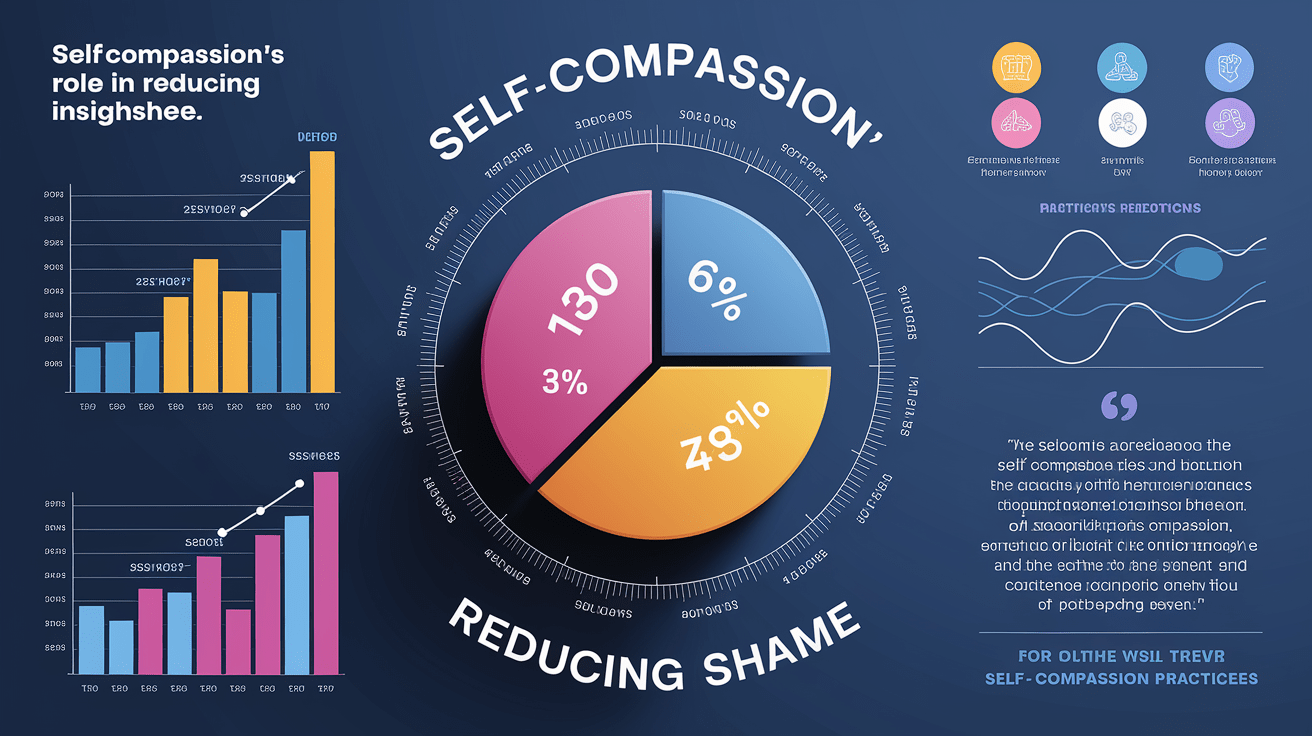Embracing Compassion: Overcoming Shame with Self-Kindness
Breaking the Chains: How Self-Compassion Dissolves Shame
Shame is often described as a deeply painful emotion that can erode self-worth and intensify self-criticism. In psychological terms, it is considered a self-conscious emotion that can be both internally and externally generated. Self-compassion, a construct explored extensively by researchers such as Dr. Kristin Neff, offers a powerful counterbalance to shame, replacing harsh self-judgment with kindness and acceptance. When practiced consistently, self-compassion fosters emotional regulation, reduces shame triggers, and supports psychological safety, enabling emotional healing and resilience.

Defining Shame in Psychology
Within the field of psychology, shame is understood as a complex emotion marked by feelings of inferiority, worthlessness, or the sense of being fundamentally flawed. It manifests in two primary forms: internal and external. Internal shame represents a global negative self-evaluation and often contributes to self-criticism and perfectionism. External shame arises from the perception of being judged negatively by others and is heavily influenced by stigma awareness and sensitivity to rejection.

The psychological effects of chronic shame include heightened vulnerability to anxiety, depression, and relational difficulties. Shame-based thinking patterns can limit self-acceptance, reduce self-esteem, and fuel toxic shame—persistent, deep-rooted shame that can impair long-term mental health.
The Three Pillars of Self-Compassion
Self-compassion, according to Dr. Kristin Neff, consists of three interrelated components that create a foundation for responding to personal suffering with understanding rather than self-blame. As defined by Neff’s model, these are:

- Self-Kindness: Treating oneself with warmth and understanding rather than harsh judgment, especially during moments of failure or difficulty.
- Common Humanity: Recognizing that suffering and personal inadequacy are part of the shared human experience, which counteracts feelings of isolation.
- Mindfulness: Maintaining balanced awareness of painful thoughts and emotions without over-identifying with them or suppressing them.
Research suggests that each pillar contributes differently to reducing shame. A study by Ceclan and Nechita (2021) found that mindfulness and self-kindness are particularly effective in reducing shame proneness, while common humanity aids in normalizing imperfections.
Research Insights: Self-Compassion’s Role in Reducing Shame
Empirical evidence highlights the significant inverse relationship between self-compassion and shame levels. In a study published in SAGE Open, researchers found that while mindfulness alone was beneficial for shame regulation, self-compassion exerted a stronger influence in lowering shame levels. This relationship underscores how self-compassion serves as both an emotional buffer and a practical tool for shame resilience.

Mechanistically, self-compassion mediates the link between awareness of emotional states and the regulation of these states, making it a key factor in dismantling the damaging cycle of shame-based self-criticism. By reducing the intensity of negative self-evaluations, it encourages self-forgiveness, enhances psychological wellbeing, and supports emotional processing.
Practical Approaches: Cultivating Compassion to Combat Shame
Developing self-compassion involves intentional practice and the integration of specific emotional regulation strategies. Evidence-based methods include:

- Mindful Awareness Practices: Engaging in mindfulness meditation to observe shame-related thoughts without over-identification.
- Compassionate Self-Talk: Replacing self-critical inner dialogue with supportive and validating language.
- Self-Compassion Exercises: Techniques such as writing a compassionate letter to oneself as described by Neff, or visualizing a compassionate figure.
- Therapeutic Interventions: Participation in Compassion Focused Therapy (CFT), which specifically targets shame and self-criticism through structured compassion cultivation practices.
These practices not only address immediate shame experiences but also build long-term emotional resilience and self-worth.
Beyond Stigma: Self-Compassion Across Life’s Challenges
Self-compassion proves beneficial in a wide range of circumstances beyond individual shame episodes. It helps mitigate the psychological effects of chronic shame in individuals facing social stigma, health conditions, or personal trauma. While socioeconomic status does not directly determine levels of self-compassion, studies such as the one highlighted here show that economic and social factors can influence the experience of shame and related affective states, indirectly impacting psychological wellbeing.
Applying self-compassion across diverse contexts—including navigating vulnerability, overcoming perfectionism, and recovering from psychological trauma—can enhance emotional intelligence, improve coping strategies, and foster shame resilience.
Blossoming from Within: A Call to Self-Kindness
The interplay between shame and self-compassion illustrates both the vulnerability of the human psyche and its remarkable capacity for healing. Grounded in evidence from psychology and supported by structured therapeutic models, self-compassion serves as a transformative force for emotional healing and self-acceptance. By embracing self-kindness, mindful awareness, and a sense of common humanity, individuals can break free from the grip of toxic shame, fostering lasting psychological wellbeing and personal growth.







